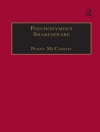This play was first published in the first Beaumont and Fletcher folio of 1647. However subsequent research has shown that the more likely authors were John Fletcher & Nathan Field.Field wrote the Induction, The Triumph of Honor, and The Triumph of Love, whilst Fletcher contributed The Triumph of Death and The Triumph of Time.No exact date for writing has been established and a window of 1608-1613 is thought most probable.John Fletcher was born in December, 1579 in Rye, Sussex. He was baptised on December 20th.As can be imagined details of much of his life and career have not survived and, accordingly, only a very brief indication of his life and works can be given.Young Fletcher appears at the very young age of eleven to have entered Corpus Christi College at Cambridge University in 1591. There are no records that he ever took a degree but there is some small evidence that he was being prepared for a career in the church.However what is clear is that this was soon abandoned as he joined the stream of people who would leave University and decamp to the more bohemian life of commercial theatre in London.The upbringing of the now teenage Fletcher and his seven siblings now passed to his paternal uncle, the poet and minor official Giles Fletcher. Giles, who had the patronage of the Earl of Essex may have been a liability rather than an advantage to the young Fletcher. With Essex involved in the failed rebellion against Elizabeth Giles was also tainted.By 1606 John Fletcher appears to have equipped himself with the talents to become a playwright. Initially this appears to have been for the Children of the Queen’s Revels, then performing at the Blackfriars Theatre.Fletcher’s early career was marked by one significant failure; The Faithful Shepherdess, which was performed by the Blackfriars Children in 1608. By 1609, however, he had found his stride. With his collaborator John Beaumont, he wrote Philaster, which became a hit for the King’s Men.By the middle of the 1610s, Fletcher’s plays had achieved a popularity that rivalled Shakespeare’s. After his frequent early collaborator John Beaumont’s early death in 1616, Fletcher continued working, both singly and in collaboration, until his own death in 1625. By that time, he had produced, or credited with, close to fifty plays.Nathan Field was born in October 1587 the youngest of seven children. His father, a Purtian preacher, was opposed to London’s public entertainments and died a few month’s into Nathan’s life. The idea, at that point, of Nathan being part of London’s theatre scene was a non-starter.However, after attending St Paul School in the late 1590’s he seems, on or around 1600, to have impressed Nathaniel Giles, a manager of the new troupe of boy players at Blackfriars Theatre.Nathan Field would now remain in theatre for the rest of his young life.He performed in the plays of Jonson, Chapman, Beaumont & Fletcher and other leading dramatists of the day.Field stayed with the children’s company until he was 26, the only one of the boy actors of 1600 to remain with the Blackfriars troupe when, in 1609, Philip Rosseter and Robert Keysar assumed control of the company. In this company, he performed in the theatre in Whitefriars and, frequently, at court, in plays such as Beaumont and Fletcher’s The Coxcomb.By this time Field had also added playwright to his talents. His first was A Woman is a Weathercock. This would lead to collaborators with some of the very best and most highly regarded dramatists of their day.Accounts say that Field was thought of as a great actor but set against this was his bohemian lifestyle which was notoriously wild. The gossip of the day reported that Field was forced to quit the stage after a scandal in 1619 when he fathered a child by the Countess of Argyll.Nathan Field died at some point between May 1619 and August 1620. By then he was still only in his early thirties but had made a distinctive contribution to the era’s theatre.
John Fletcher & Nathan Field
Four Plays in One [EPUB ebook]
"We wish to men content, the manliest treasure, And to the Women, their own wish’d for pleasure"
Four Plays in One [EPUB ebook]
"We wish to men content, the manliest treasure, And to the Women, their own wish’d for pleasure"
Mua cuốn sách điện tử này và nhận thêm 1 cuốn MIỄN PHÍ!
Ngôn ngữ Anh ● định dạng EPUB ● Trang 108 ● ISBN 9781787379268 ● Nhà xuất bản Copyright Group ● Được phát hành 2018 ● Có thể tải xuống 3 lần ● Tiền tệ EUR ● TÔI 7000692 ● Sao chép bảo vệ Adobe DRM
Yêu cầu trình đọc ebook có khả năng DRM












